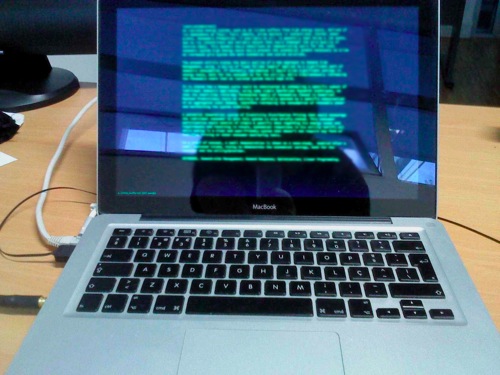Scary piracy
My perception: Apps will be pirated.
The reality: Yes, that will happen, no matter what you do. Guaranteed. Can’t stop it. Can’t prevent it without (unreasonable, for most cases) amounts of effort. It happens to App Store apps too, all the time.
Suggestion: Seriously, don’t worry about it. Most people don’t pirate stuff unless it’s trivially easy to do so, and/or you make legitimate purchasing unduly difficult or expensive (see The Piracy Threshold).
Just accept that it’s going to happen, and don’t lose any sleep over it. Take it as a compliment that hacknerds want your stuff. As long as enough people do actually pay for your software, what do you really care anyway?
How long it’ll take: To not worry it? Zero minutes. Do something fun instead.
Notes: Maybe read a book? Not a technical book. A novel. Or head to the pub for a while.
Matt Gemmell
This is probably the sanest thing about piracy i’ve heard in a long time. It’s gone happen, you can’t stop it, just make some minimum level of protection so that most honest/regular people can buy it and stop worrying about it.
The whole insane level of protection of big developer house games / software that makes you jump through 99 loops before you can play is not only insulting to honest buyers but mindlessly useless. If it can be built, it can be hacked and it will be. The only persons you’re inconveniencing are the ones that actually bought your game and didn’t got it already cracked from the web. Those who did got it cracked from the web, actually manage to get a better gaming experience, essentially due to the developers efforts to screw its paying customers. Does that make any sense?
For a personal anecdote, let’s say hypothetically that i once managed to get hold of one of those cracked games downloaded from the web somewhere… Let’s say hypothetically, that i loved the game so much that i went and bought the game in a promotion due to me wanting the full experience, the nice box and manual, and also so that i could give back to the developers. Let’s also say hypothetically, that the game had a CD verification system that required that i carried the optical disk all the time with me if i wanted to play. Let’s say hypothetically that this was somewhere in the last 4 years, where laptops are omnipresent and over the internet verification / activation where already the norm. Let’s also say hypothetically that it mainly wasn’t even an online multiplayer game but a regular single player offline game.
See the problem here? If i wanted to play the legitimate legal copy of the game, i had to carry a CD and insert it, and spend battery just spinning the thing so that the game could start. (( also increasing the physical damage to the media disk. )) If i just went and played the illegal downloaded copy, i wouldn’t have such limitation and could just enjoy the game whenever and wherever i wanted. Let’s say hypothetically, that for the first months i didn’t even played the game because every time i remembered and had time to play, i wasn’t even near the physical media. Do you wanna take a wild guess how much time it took me to go back and just download the illegal copy again so that i could play the game when i wanted? (hypothetically, off course…)



